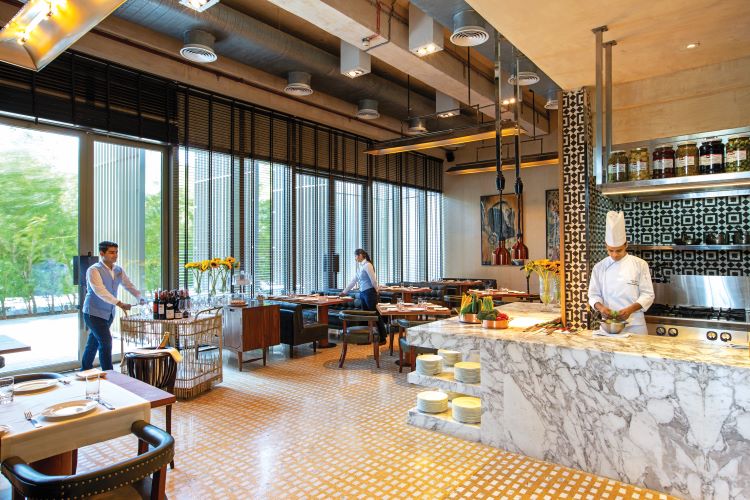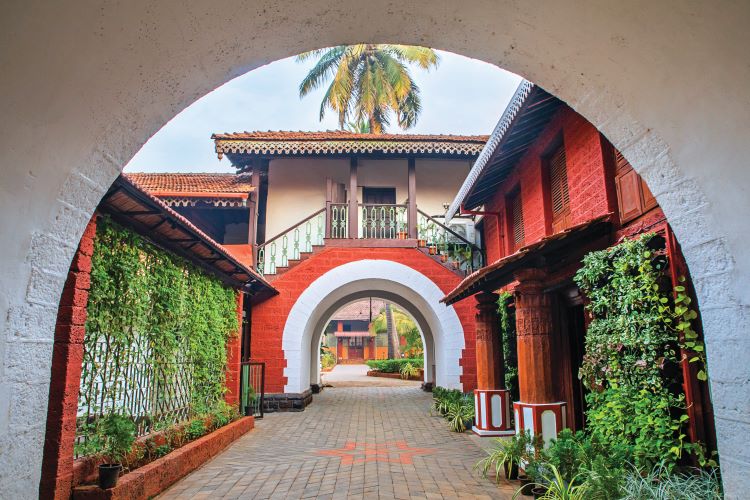Responsible housekeeping is not just a practice, it is a core value shaping an exceptional and sustainable guest experience.
Ananya Kukreja
In the ever-evolving landscape of global hospitality, the mantra of responsible housekeeping is echoing louder than ever. “Responsible housekeeping is about maintaining sustainable business practices, while considering environmental and social impact,” highlighted Nithil Baskar, Director, Operations, JW Marriott Mumbai Sahar. This thought goes beyond the conventional notions of cleanliness, diving deep into eco-friendly products, energy conservation, waste reduction and a commitment to the well-being of the guests and the broader community.
While the hospitality industry embraces this transformative ethos, a seismic shift is underway. According to the World Conservation Union, ecotourism is growing at a rate of 20-34 per cent annually. Currently, there are 30 certification programmes for sustainable and responsible tourism, allowing travellers to identify eco-friendly havens and hotels to showcase their contribution. By January 2022, 400,000 accommodations globally, certified by agencies such as Green Key and LEED, stood out as beacons of commitment to sustainable and responsible practices.
In this pursuit, housekeeping emerged as a pivotal player, having the potential to not only uphold sustainability goals but also attract a discerning and educated audience.
Sonpal Singh, Executive Housekeeper, Courtyard by Marriott Aravali Resort, stressed the responsible housekeeping is not a practice, but a core value shaping an exceptional and sustainable guest experience.
Responsible housekeeping transcends the mere cleanliness of a room. The term encompasses a holistic approach respecting the environment, conserves resources, and ensures the well-being of the guests.
Impact on hotels
When we try to reduce wastage, we invariably allow the hotel to operate at a lower cost and contribute to its bottom line. “Efficient housekeeping practices such as scheduled cleaning, proactive maintenance and smart inventory control can reduce operational expenses, while maintaining high standards for the hotel,” said Chayanika Nath, Housekeeping Manager, Sheraton Grand Bangalore Hotel at Brigade Gateway. Proper resource management with the stringent practice of following operating procedures can reduce waste. Even the simple act of saving paper and moving to digital alternatives allows organizations to serve the environment, while streamlining and accelerating internal processes. A typical worker spends an estimated 30-40 per cent of his/her day searching for printed documents. It goes without saying that today’s educated audience respects organizations working towards the greater good.
Gamechangers
“Water consumption and wastage are matters of great concern,” said Manish Goyal, Founder, Stotrak Hospitality. Water harvesting, treatment and recycling must be given greater importance and investment. “Hydrogen energy used for vehicles should also be extended to the industry—this could really be a gamechanger when it comes to our energy needs and eco- friendly practices,” highlighted Niraj Kumar Sinha, Vice President, Operations, The Parterre, Ahmedabad. “There are some other gamechanging initiatives that government can help us with, which include subsidies for procuring or generating green energy, taking actions and reinforcements with businesses and vendors that make and supply harsh chemicals for housekeeping practices, creating awareness campaigns targeting the hospitality and tourism industries, tax incentivisation for hotels using green practices of water consumption. Providing comprehensive training programmes and certifications serves as a valuable strategy to standardise eco-friendly practices within the hospitality industry. By doing so, it not only fosters a uniform approach to sustainable practices but also empowers guests to discern and choose eco-conscious hotels. Consequently, this initiative plays a pivotal role in actively promoting and advancing the cause of sustainable tourism,” advised Sarbendra Sarkar, Founder & MD , Cygnett Hotels & Resorts.
Practices hotels now employ & many can adopt
- Keep an eye on systems and processes to practice them conservatively.
- Creating a green team.
- Reducing carbon footprint—inhouse bottling plants —an initiative hotels are taking of late.
- Making the hiring and
training process sustainable. .
- Promote eco-friendly guest services, such as residential bathroom amenities and reusing linen, among others.
- Upgrade transportation offerings and services with sustainability in mind—electric vehicle charging stations are an example.
- Shopping local.
- Recycle and compost.
- Donating to the local community.
- Automating water and energy conservation.
- Invest in sustainable infrastructure—inhouse water treatment plants are an example.
- Reduce the use of single-use plastic.
- Make green decisions.
- Shop for certified green appliances.
- Optimal unitisation of HVAC systems.
“Responsible housekeeping is about maintaining sustainable business practices, while considering environmental and social impact.”
Nithil Baskar, Director, Operations, JW Marriott Mumbai Sahar
“Responsible housekeeping shapes sustainable guest experience.”
Sonpal Singh, Executive Housekeeper, Courtyard by Marriott Aravali Resort
Providing comprehensive training programmes & certifications serves as a valuable strategy to standardise eco-friendly practices within the hospitality industry.”
Sarbendra Sarkar, Founder & MD, Cygnett Hotels & Resorts







